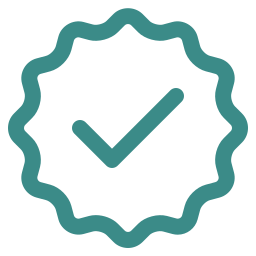Explore the World of Pilates: A Comprehensive Guide to the Types of Classes Available and How to Choose the Right One for You
Pilates is a form of exercise that has become increasingly popular in recent years.
It is designed to help people strengthen their core, improve posture and flexibility, and enhance overall physical health.
If you're considering trying Pilates classes for the first time, it's important to understand what types are available and how they can benefit you.
In this article, we will guide you through the different types of Pilates classes so that you can make an informed decision about which one might be best for your individual needs.
Pilates classes come in several formats from private sessions with certified instructors to group classes at home or in a studio environment.
Different styles may emphasize specific movements or one of the 6 Pilates principles more than others depending on the instructor’s approach and experience level.
The traditional method emphasizes precise control while contemporary approaches take a more free-flowing approach incorporating elements from other fitness disciplines such as yoga or dance.
Additionally, there are also specialized forms tailored towards particular goals like pre-natal Pilates or sports performance Pilates.
No matter your age or skill level, there is a type of Pilates class out there that can help meet your goals and give you the strength and mobility benefits associated with this practice.
Read on to discover more about each type of class so that you can find the perfect fit for your lifestyle!
Introduction To Pilates Classes
Did you know that over 11 million people practice Pilates worldwide?
That's a lot of people who have discovered the many benefits of this exercise system.
Whether it’s toning up, improving posture or increasing flexibility, Pilates classes are becoming increasingly popular for all kinds of fitness enthusiasts.
Pilates group classes are an ideal way to learn the basics and get into shape with other like-minded individuals.
Beginner Pilates classes can range from gentle stretching exercises to more intense core workouts where you use reformers such as Private Pilates Reformer.
It is important to find a class suitable for your level as each instructor will offer something different in terms of intensity and difficulty.
From here, let's explore how there are different types of Pilates classes available so that everyone can benefit from this method regardless of their experience level and goals.
Types Of Pilates Classes
Like a puzzle of pieces, there are several components that make up the engaging and diverse world of Pilates classes.
A myriad of types exists to fit every body type and desired intensity level. So if you're looking for an invigorating workout or something more low-key, there's certainly something available!
Let's take a look at some of the most popular varieties you'll come across when exploring intro Pilates classes.
First off, we have mat-based Pilates classes, this tends to be the most common type found in studios.
They focus on core strengthening exercises using your own body weight, with minimal use of equipment such as balls and bands.
Here, participants can expect an intense full-body workout while still having time to perfect their form and alignment.
Another great option is the Pilates Reformers class which uses a reformer machine like Align Pilates F3 Reformer to add resistance training into the mix.
It’s ideal for those who want cost-effective group sessions without sacrificing quality instruction.
Finally, other specialised forms like pre/postnatal Pilates classes also exist for pregnant women or new mothers wanting a safe way back into exercise after giving birth.
No matter what type you choose though each one offers different benefits from flexibility improvement to increased strength and better posture.
Plus, all levels are welcome!
It's clear why people keep coming back for more: no two experiences will ever feel the same due to changing sequences and instructors' unique styles.
All in all, choosing between various types of Pilates classes really comes down to personal preference… and now let us dive deeper into understanding how group Pilates classes work.
Group Pilates Classes
Group Pilates classes are a great way to learn the fundamentals of Pilates in an interactive setting.
In these classes, you can work with other people who share your interest in this form of exercise and challenge each other to get better results.
Plus, working out with a group is fun!
In a typical Pilates group class, an instructor will lead participants through various poses and exercises designed to improve flexibility, core strength, and overall fitness levels.
You'll be able to ask questions and receive helpful advice from the instructor as well as fellow classmates.
Group classes are also often more affordable than private lessons, so it's easy for everyone to participate without breaking the bank.
You don't have to be an experienced practitioner or even have any previous experience with Pilates at all. There’s something for everyone in a Pilates group class!
Whether you're looking for beginner tips or challenging yourself with advanced movements, you can find what you need here.
With guidance from your teacher and support from others around you, learning Pilates has never been easier.
Private Pilates Lessons
When it comes to private Pilates lessons, these types of Pilates sessions offer an individualized approach.
During a private session, the instructor will work one-on-one with you to design and tailor the exercise program that best fits your needs.
You'll be able to focus on strengthening and toning specific areas of your body that need extra attention.
Plus, since the instructor has more time devoted solely to you during a private lesson compared to a group class, they can go over proper techniques in greater detail as well as provide personalized modifications for each move.
Private Pilates lessons are ideal if you're just starting out or have special physical limitations due to injury or illness.
Your instructor can assess where you are physically and adjust exercises accordingly so that you get the most benefit from every lesson without putting too much strain on your body.
Overall, this is especially beneficial for those who want specialized instruction but don't feel comfortable attending large group classes.
These customized private Pilates lessons allow people to practice at their own pace and receive helpful feedback along the way so they can reach their goals faster than ever before.
With regular attendance, there's no doubt that students will see results quickly - both mentally and physically!
So now that we've gone over what makes private Pilates sessions different from group classes, let's take a look at how long each type of class lasts...
How Long Is A Pilates Class?
First and foremost, it's important to note that there are several types of Pilates classes.
Private lessons tend to last an hour while small group sessions usually stretch for 45 minutes or less.
Additionally, mat classes generally only span 30-45 minutes as they are typically more focused on stretching and basic movements than private lessons which may also involve machines or weights.
That said, always remember to check with your instructor before attending any class.
Since some instructors may choose to adjust the duration depending on their own teaching style or other factors such as the number of participants.
Furthermore, if you're taking a virtual class online, make sure to take into account potential delays due to technical issues so you can plan accordingly!
So whether you’re looking for a leisurely workout or an intense full-body experience, understanding how long is a Pilates class will help ensure that you get exactly what you need from your next session.
Onward then to our exploration of beginner Pilates classes...
Beginner Pilates Classes
If you're new to Pilates and want to understand what a beginner Pilates class is, then look no further.
A beginner Pilates class allows those who are just starting out to learn the basics of this exercise style in a safe and secure setting.
It's important for beginners to know where they can take a Pilates class so that they can find an instructor or studio that meets their needs.
Beginner Pilates classes provide individuals with the opportunity to understand the fundamentals of each movement while still having fun.
This type of class focuses on perfecting form before introducing more complex exercises using BASI Systems reformer.
In addition, instructors will go over breathing techniques as well as basic postures such as planks and bridges.
Many studios offer small group classes which allow attendees to receive personalized instruction.
A great way for newcomers to get started with Pilates is by taking an introductory course at their local studio or gym.
Here, they'll have access to all sorts of Pilates equipment for sale like reformers, weighted balls, blocks, straps, bands and more!
Plus, many facilities also include mat-based sessions too - giving everyone the chance to practice from home if desired.
With all these options available, there's something for every fitness level when it comes to taking a beginner’s Pilates class.
Moving onto the next step: advanced Pilates classes...
Advanced Pilates Classes
Advanced Pilates classes are a great way to take your workout routine to the next level.
According to research, people who participate in advanced Pilates classes find improvements in their strength and flexibility within 6 weeks of consistently attending classes.
Advanced Pilates classes require more experience than beginner-level classes as they usually include exercises with multiple components that challenge both physical and mental stamina.
This type of class is designed for those who already have an understanding of basic Pilates techniques such as breathing, postural alignment, and core control.
In addition, it encourages participants to stretch further into poses without compromising form or technique.
The range of movements taught in advanced Pilates classes can help you build muscle tone and improve balance while challenging coordination and increasing body awareness.
Many instructors will incorporate weights, resistance bands, foam rollers or other props into each exercise in order to increase intensity levels and fine-tune each pose for maximum effectiveness.
With this combination of elements, the potential for transformation is limitless!
Now that you know what goes into an advanced Pilates class we'll look at how you can find one that's right for you...
Finding A Pilates Class
Are you looking to start a Pilates class?
Whether you're a beginner or an advanced user, finding the right workout can be difficult.
But with some research and guidance, it doesn't have to be!
Let's take a look at how to find the perfect Pilates class for your needs.
First off, consider what type of Pilates class is best for you.
If you’re just starting out in the world of fitness, opting for a beginner-level Pilates class is probably the best.
This way, you'll get used to the movements and develop strength before progressing to more challenging classes.
On the other hand, if you already know your way around a Pilates mat then an intermediate or advanced level could help push your practice further.
Next up is location; where will you go to do this workout?
Do some online research into local studios that offer different types of Pilates classes so that you can pick the one closest to your home or workplace.
And don't worry about being intimidated by experienced practitioners - most studios cater to all levels from beginners through to pros.
Finally, make sure that whatever studio you choose fits your schedule and budget requirements.
You should also check their policies on equipment rental and cancellations so that there are no surprises down the line.
With all these considerations taken care of, you’ll soon be able to enjoy reaping all the benefits of practicing Pilates on a regular basis!
Pilates Class Workouts
Stepping into a Pilates class is like entering another world.
The calming atmosphere and the focus on core work can help you feel centered and relaxed.
It's easy to see why so many people are drawn to this kind of workout!
A Pilates class will typically involve some form of stretching, strength training, and balancing exercises that all target your core muscles.
Beginners should start with a basic level class or an introductory workshop to get acquainted with the typical movements before progressing onto more advanced levels.
As you progress, the workouts become more challenging as they incorporate new elements such as weights and resistance bands.
No matter where you are in terms of fitness level, there is always something for everyone at a Pilates class.
Whether it's learning how to do specific poses correctly or pushing yourself further by adding heavier weights to your routine.
With each session comes a renewed sense of energy that makes you want to come back for more!
Frequently Asked Questions
How Much Does A Pilates Class Cost?
Pilates can be a great way to stay healthy, but it’s important to consider the cost.
Depending on where you live and which studio you visit, Pilates class costs could vary significantly.
Some studios may offer discounts for new members or packages that lower the overall cost of multiple classes.
In addition to location and any discounts available, other factors will influence how much a Pilates class costs.
Many studios charge based on whether it's an individual or group session. If there are more people per class, then the price might be reduced.
Additionally, some instructors may charge rates depending on their experience level or the type of equipment used during a session.
It pays to do your research before signing up for a Pilates class so you know what kind of expenses you'll have to cover.
By understanding all aspects of pricing and comparing different options in your area, you can find a class that fits into your budget while still having access to quality instruction.
Are There Age Restrictions For Pilates Classes?
When it comes to participating in a Pilates class, age can be an important factor.
Pilates is a form of physical exercise, so there may be certain restrictions based on how old someone is.
It's essential to know what these age limits are before signing up for any type of Pilates class, as they could vary depending on the instructor or studio offering classes.
Typically speaking, most Pilates studios and instructors will have some kind of minimum age requirement for participants.
This typically ranges from 12-16 years old but this limit could change depending on the complexity of the exercises being taught in each session.
Participants under those ages should always consult their doctor before enrolling in a Pilates class to ensure that it's safe for them physically.
On the other end of the spectrum, many studios also don't have an upper age restriction when it comes to taking part in Pilates classes.
As long as a participant has no underlying medical conditions that would prevent them from exercising safely, anyone over 16 years old is usually welcome to take part in a class regardless of their age.
However, older participants should still make sure they check with their doctor beforehand just to be sure that everything is alright health-wise.
Do I Need To Bring My Own Equipment To A Pilates Class?
Pilates classes are a popular form of exercise, with around 10.9 million Americans participating in 2019 alone.
Whether you’re new to Pilates or an experienced practitioner, understanding the equipment requirements for your class is key to getting the most out of it.
So, do you need to bring your own gear? In general, no.
All necessary equipment like Align Pilates C8 Pro Reformer or BASI Systems Pilates Cadillac will be provided by the studio or instructor.
However, depending on where you take classes and what type of class you choose, there may be exceptions.
For example, some hot yoga studios require participants to bring their own mats due to safety concerns; likewise, if you opt for private lessons at home then obviously you would need your own mat!
Additionally, while props like small weights and resistance bands are usually supplied by instructors and studios alike during group classes, they may not always have enough for everyone so bringing a few extras could prove useful.
Whether in-studio or online, ensuring that you know what's expected of you before turning up - including any potential special gear needs - is essential in order to get the maximum benefit from each session.
Taking a moment to double check can save time and frustration later on down the line!
What Should I Wear To A Pilates Class?
If you’re considering attending a Pilates class for the first time, it can be daunting to think about how to prepare.
One of your main concerns is likely what clothes you should wear – after all, comfort and style are both important!
Don't worry, we've got you covered on that front.
When deciding what to wear to your Pilates class, keep in mind that there isn't one single answer that fits everyone's needs.
It really depends on the type of class and level at which you're participating.
For example, if you're taking an advanced-level mat or reformer course using props such as straps and balls, then fitted clothing would work best so that the instructor can monitor your form more easily.
On the other hand, basic classes don't require anything special; most people wear loose-fitting garments such as sweatpants and a t-shirt.
While some might argue that looking fashionable during exercise isn’t necessary, wearing something comfortable can actually help make sure you focus properly on the movements instead of constantly worrying about whether your outfit looks right or not.
Plus, when you look good while exercising, it gives you extra motivation to perform better since it boosts self-confidence!
TIP: If possible try out different types of workout gear before settling on just one set — this way you'll know exactly what feels good and helps maximize performance.
Are Pilates Classes Suitable For People With Physical Disabilities?
Pilates classes can be thought of as a bridge to improved physical and mental health, connecting people with disabilities to the strength and flexibility their bodies need.
Just like any other form of exercise, Pilates is suitable for those with physical impairments, allowing them to build up their core muscles safely.
However, it's important to remember that everybody is unique.
While some may find Pilates classes beneficial in helping manage pain or improving mobility, not everyone will have the same experience.
Before participating in a class, it's essential that you consult your doctor and discuss which exercises are safe for you to do.
It's also worth noting that many studios offer specialised sessions tailored specifically for those with physical disabilities.
These classes are taught by instructors who understand how best to modify each move so they're accessible and comfortable for everybody taking part.
With this kind of support, there's no reason why anyone should miss out on achieving greater well-being through Pilates!
Conclusion
The journey of Pilates can be a powerful and transformative one.
It is truly an art form, requiring dedication and commitment to master the various poses and movements.
As we strive for balance in our lives, it’s important to remember that Pilates classes are available to all who seek them out – regardless of age, budget, or physical ability.
Symbolically speaking, Pilates serves as a reminder that progress isn’t always linear but often cyclical.
Just like the motions of some Pilates exercises which involve spirals and circles instead of straight lines, life too has its own twists and turns that require us to adjust our course from time to time.
With this knowledge firmly in hand, may you find strength on your Pilates journey as you explore different types of classes!
No matter what type of class you choose, every session should focus on building core strength while incorporating elements of mindfulness into each movement.
At the end of each session, take a moment to reflect upon how far you have come since starting your practice – both physically and mentally – and allow yourself to feel proud of the accomplishments achieved through hard work and perseverance.
If you think that a private Pilates class is for you, then check out our Pilates Reformer catalogue and start your path to a healthier body!




